Sharing perspectives at the SIGMA Global Virtual Course
Monday Feb 08,2021 | Social Innovation
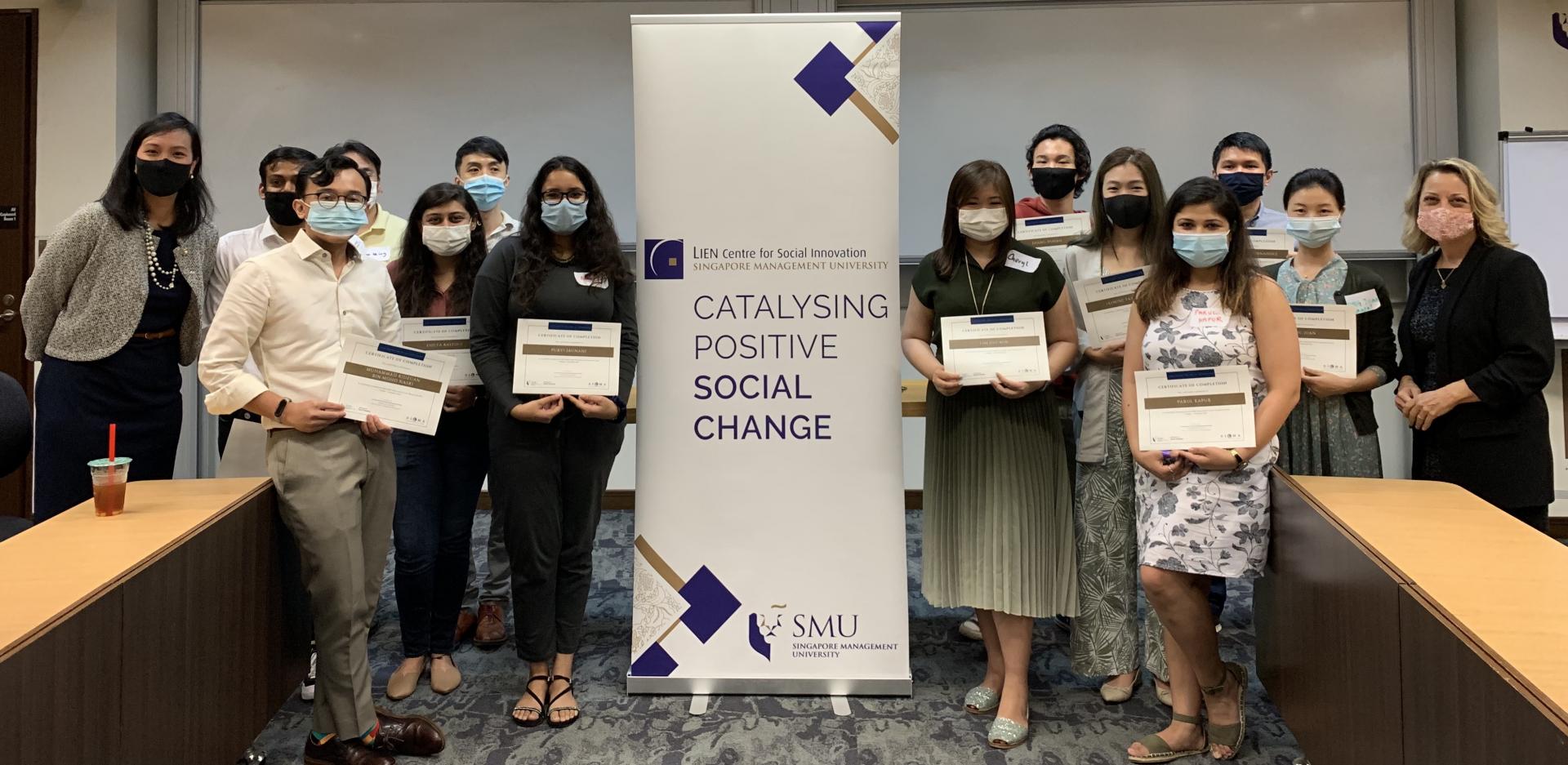
When the United Nations adopted the 17 UN Social Development Goals (SDGs) back in 2015, it was done as an "urgent call for action" to countries around the world, urging leaders to work together as a global community to save the earth. Five years down the road, this urgency to build a better world is striking a chord with many. More businesses and organisations are taking action to do their part by sharing their time, resources and expertise. From global brands like Coca-Cola, that talk about reducing carbon footprint, to smaller, independent startups like One Kind House that's founded to encourage sustainable living, the term corporate social responsibility (CSR) has become more than just another piece of jargon thrown into sales pitches to win new shareholders.
The concept of social purpose also began to pick up in different communities in recent years. As we begin to experience the effects of global warming, a new sense of social consciousness affected people's spending decisions as they chose to support organisations that shared the same values. But are organisations really doing what they preach? And how have the UN's SDGs made a difference, five years after they were adopted?
With those questions in mind, the Societal Impact and Global Management (SIGMA) Global Virtual Course was founded in 2018. The online, inter-university course is part of the SIGMA Alliance, which seeks to promote a holistic, rigorous, and collaborative approach to academic work in management and the social sciences in addressing societal challenges of today and tomorrow. Its purpose is to give graduate students the opportunity to engage in critical thinking and discuss how these SDGs have impacted communities.
Bringing an Asian perspective to the table, Singapore Management University, a SIGMA founding member, with the Lien Centre for Social Innovation (LCSI), collaborated with six other universities across Asia and Europe to put together thought-provoking modules to answer questions that surround the 17 SDGs. 2020 marked the third run of the course, where selected students had the opportunity to undertake the course for free.
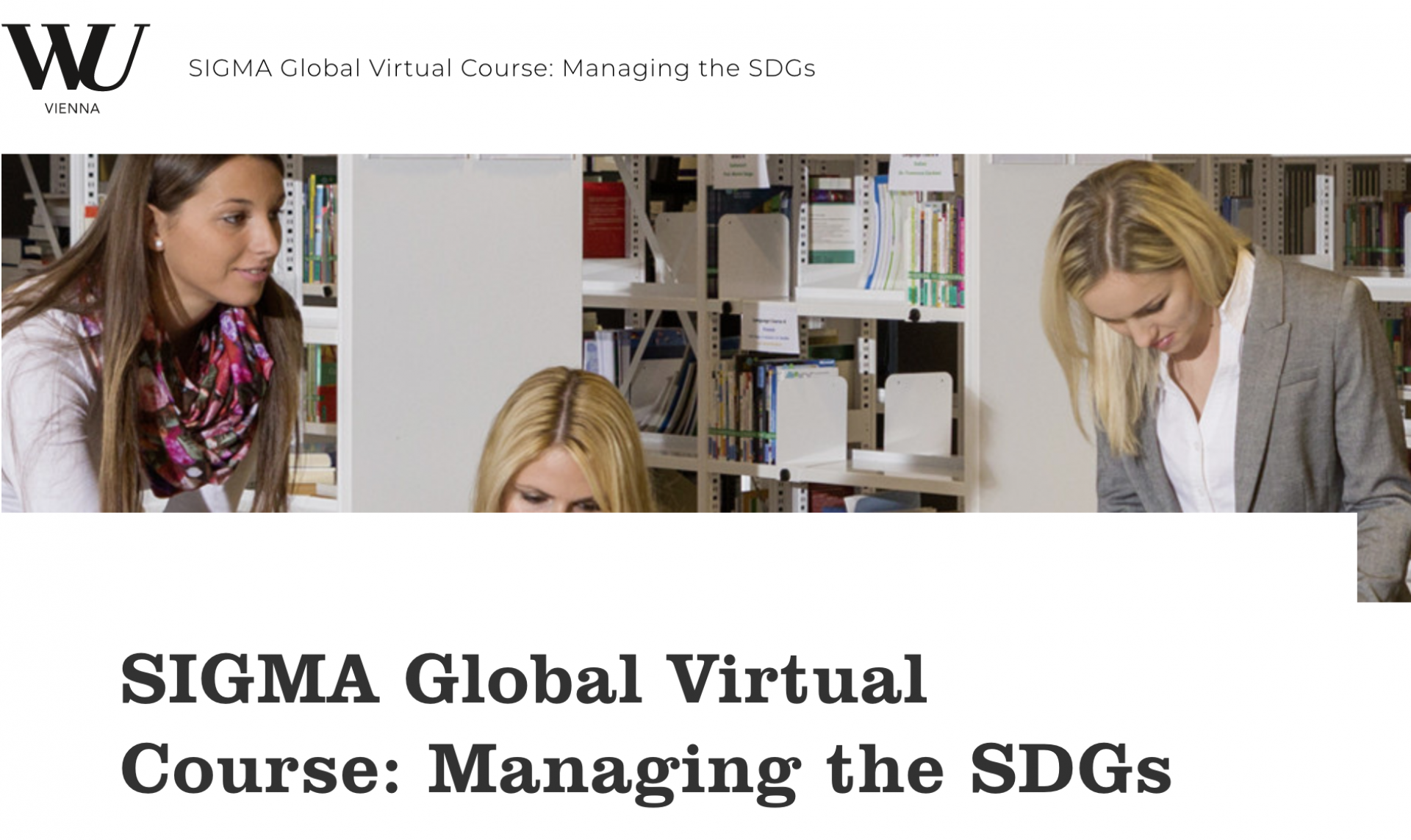
Screengrab from SIGMA Global Virtual Course website.
A learning opportunity beyond borders
Curriculum aside, the global approach is what makes this course unique. Taught by professors and attended by students from seven tertiary institutions around the world, it was refreshing to see the collaboration effort that went into the course. To fulfil the course requirements, students were required to work together in teams to deliver a CaseCast (a case study presented in video format) at the end of the eight weeks.
Each group had the freedom to research sustainability initiatives of an organisation of their choice. They were required to provide analysis and evaluation of the organisation’s sustainability programming, offering critical reflection of effective and ineffective programme aspects. They then provided recommendations to help improve the sustainability programme they researched based on their learnings from the course and the United Nations SDG framework. These findings were then delivered in an impactful way through the CaseCast video presentation.
SMU business student Purvi Jagnani shared that the SIGMA course has taught her how to step out of her comfort zone, and be more open to different views and opinions. "Asians and Europeans have different ways of thinking, and I saw this as a learning opportunity," she said. "It can be convenient to only work with people we know and cultures we are familiar with, but it can be refreshing to learn from others with a different point of view. This course also helped me build self-confidence to meet and connect with new people, something that is so important in the business world."
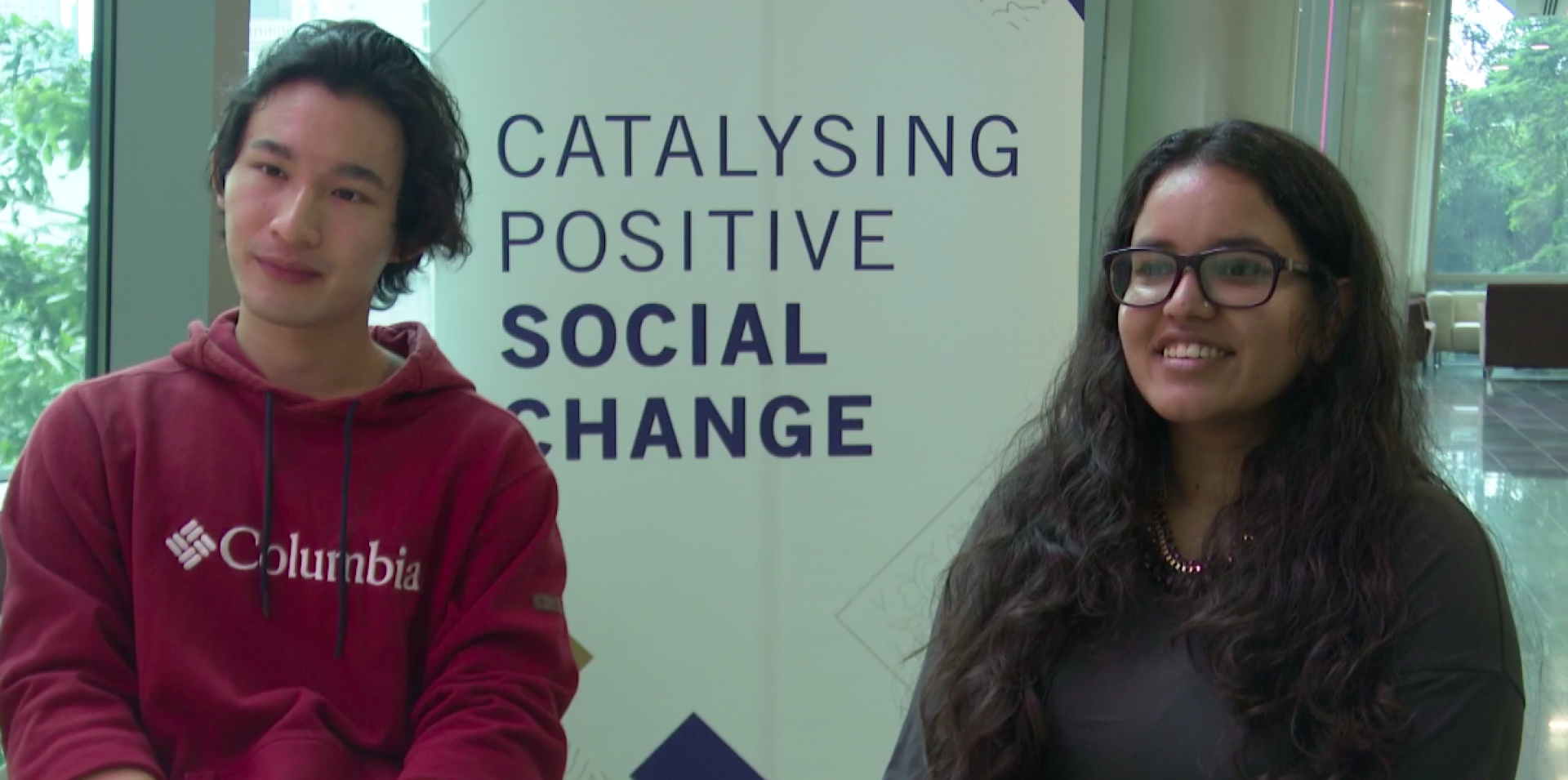
Another student, Zhang Yuhao, who is currently enrolled in the Masters of IT in Business, Artificial Intelligence track, said, "Working with people from different backgrounds both culturally and academically was a refreshing experience. One of my group mates in Vienna, for example, is developing her master thesis in sustainability in the fashion industry, while another in Paris is pursuing a Master's degree in International Business Management. As such, our discussions often covered a lot of ground when we combine our knowledge and experiences."
Leveraging technology to tell a story
Despite the fact that students never met each other physically throughout the duration of the course, they were able to leverage the power of video to make their point through their final CaseCasts.
Zhang said that there were a lot of researched-backed suggestions and opinions shared over the video calls as his team worked on the case cast, which made the project interesting and fun to work on. Everyone played a part by sharing their areas of expertise to develop a strong CaseCast. "We've certainly built rapport over the course of developing this CaseCast," he shared, adding that team members have also decided to visit each other one day.
Another student, Lim Hui Min, stated that the course taught her to not only think critically about the subject matter, but also to be adaptable to her team's ways of working. "I found that my counterparts appreciate open dialogue when bouncing ideas off each other and sharing feedback, so we spoke openly during our meetings. No one was afraid to share their thoughts," she said.
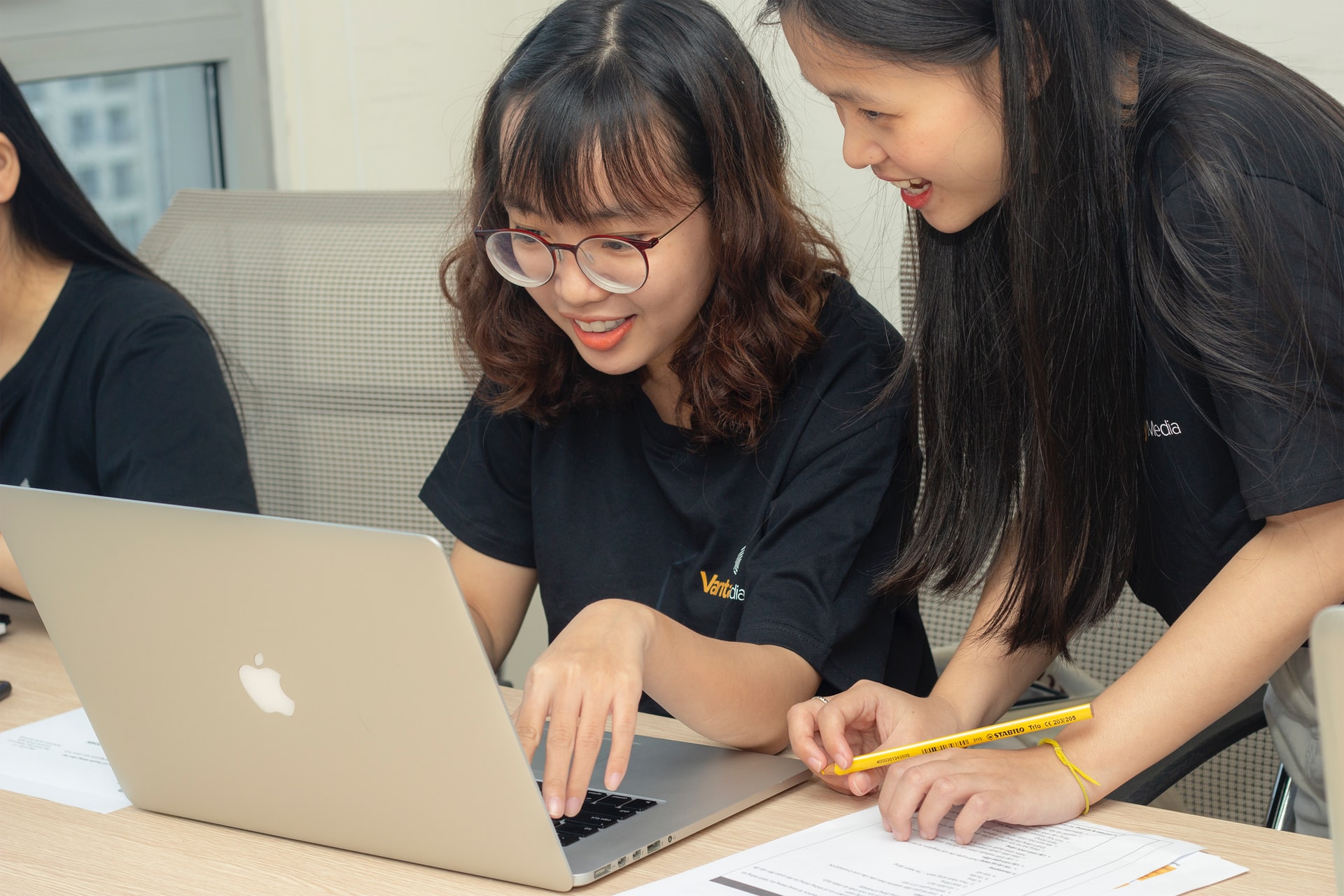
Image via Unsplash.
With technology at everyone's fingertips, teams could successfully create a case cast together despite being miles apart. LCSI Programme Manager Dr Alan J. Yu said, "What's great about this course is that it gives students the power to tell a story together, regardless of geography. Through the case cast, students learned to draw from different sources of information to think critically about global issues."
Small steps towards a brighter future
From responsible global leadership to social entrepreneurship and clean energy business opportunities, the SIGMA course opened doors to conversations that sparked new ideas and encouraged problem-solving skills.
By the end of the eight weeks, students not only had the opportunity to think more deeply about social innovation and the different sustainability concepts, but also to reevaluate how organisations work towards fulfilling their social and environmental goals.
As Hui Min said, "I hope to bring these new ideas and concepts to my workplace, so that we can work on improving the lives of people in marginalised groups and keep them gainfully employed, regardless of the economic climate."
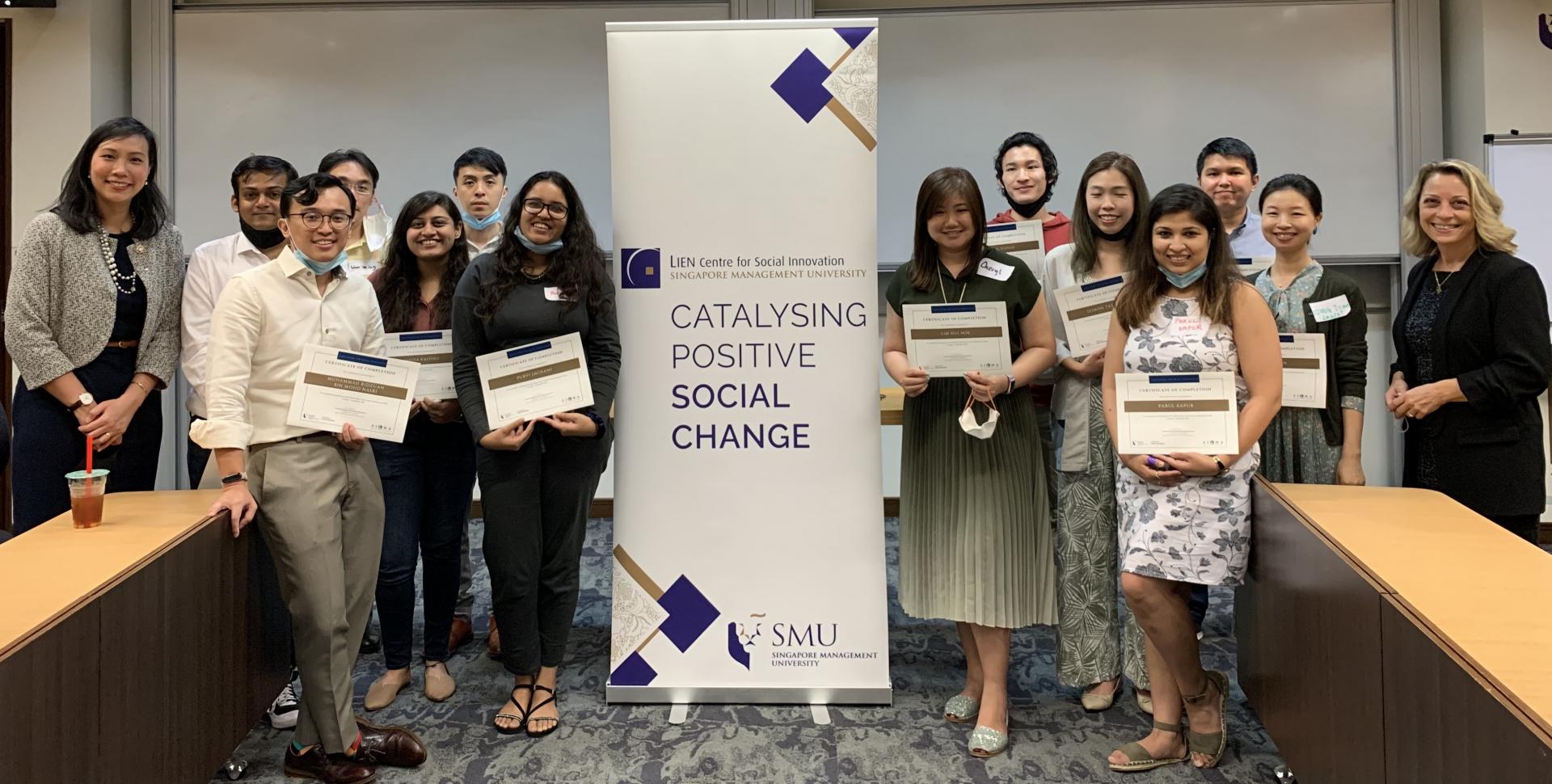
Unless otherwise stated, all images are courtesy of the SIGMA Global Virtual Course organisers.